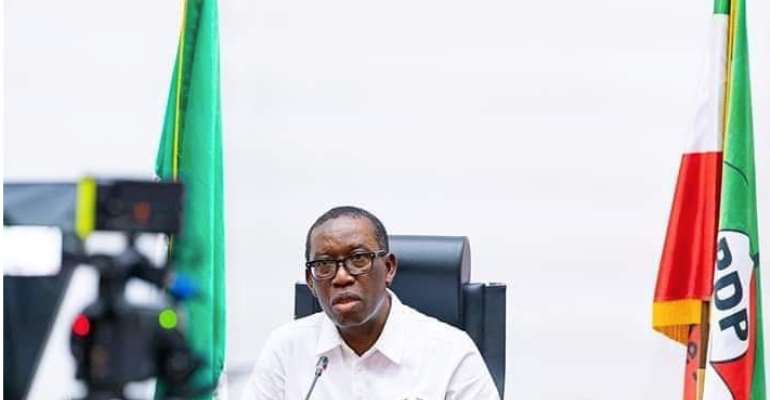Lockdown: Delta Government Urged To Introduce Electronic learning For Students

As schools in Delta State remain closed till May 30th 2020, the state government has been called upon to in addition to the teleclass for JSS3 and SS3 students introduce electronic learning for students across the state.
An Information Technology Communication expert, Engr. Bright Chibizor, appealed to Dr. Ifeanyi Okowa-led administration to introduce the e-learning method to help boost the students during the lockdown.
Engr. Chibizor, who doubles as the Managing Director and Chief Executive Officer of Bricz-May International, also commended the state government for introducing the television learning to children in the state, noting that the teleclass method was not enough.
In a statement on Tuesday, made available to journalists, Chibuzor, who compared both methods of teaching and learning, disclosed that the e-learning would give the students and their teachers the privilege of interacting with one another while the teleclass introduced by the ministry of Basic and Secondary School Education would only afford the children the opportunity to continue learn during this lockdown.
According to Chibuzor, an Electrical/Electronic Engineer "It done on me that, our children are not really engaged. Yes and oh yes, the Delta State Government have done so well to introduce radio and tele learning to our children which I applaud them for as its a welcome development and it suits our current times, yet its still not enough!
"Now, comparing the radio and tele learning and our classroom learning, the former can barely engage our children as its not a feedback learning process where you can understand if the children are following or not. However, the later engages children better and the teacher will have a better understanding if the children are following or not.
"Be as it may, here exist an existing solution which is just close to classroom learning and better than radio and tele learning. This is technology driven and its called the e-learning. It may sound expensive since the government have seriously channeled resources to other pressing country needs but the fact is that, it is cheap. I repeat, there are cheaper ways around it.
"It does requires building huge online platforms, spending big money, building and maintenance cost, staffing, overhead cost etc. It just requires employing existing tools on the internet and leverage on them. Using this means, the teachers can be in their respective homes, while the children will be at their various homes learning seamlessly.
"It may not necessarily be live but the teachers can produce a tutor content and exercises while the children in their various homes, learn the created content and treat those exercises and submit to their teachers. By so doing, the teachers can rate their performances and know the area to concentrate. All these can be achieved by leveraging on free tools on the internet. No need for website design and hosting.
"Now, everyone may be thinking about too much data to be spent and consume. Not really. Just an investment of 50MB per school day will do the job. As we may know it, over 50% of parents have smart devices which they can use for their children (under parental guidance and control) as everyone is at home except for a few essential workers. This is a call for the government to embrace e-learning this challenging times.
"My team and I are willing to work with the government to bring the teachers and every other stake holders up to speed through DIY (Do It Yourself) means like tutorial videos, walking them through all the available free tools on the internet to aid their teaching process".
It would be recall that the Commissioner for Basic and Secondary School Education, Chief Patrick Ukah, an innovator, a researcher par excellent, had introduced teleclass for JSS3 and SS3 students to bridge learning gaps due to the Coronavirus pandemic which resulted into a lockdown.
